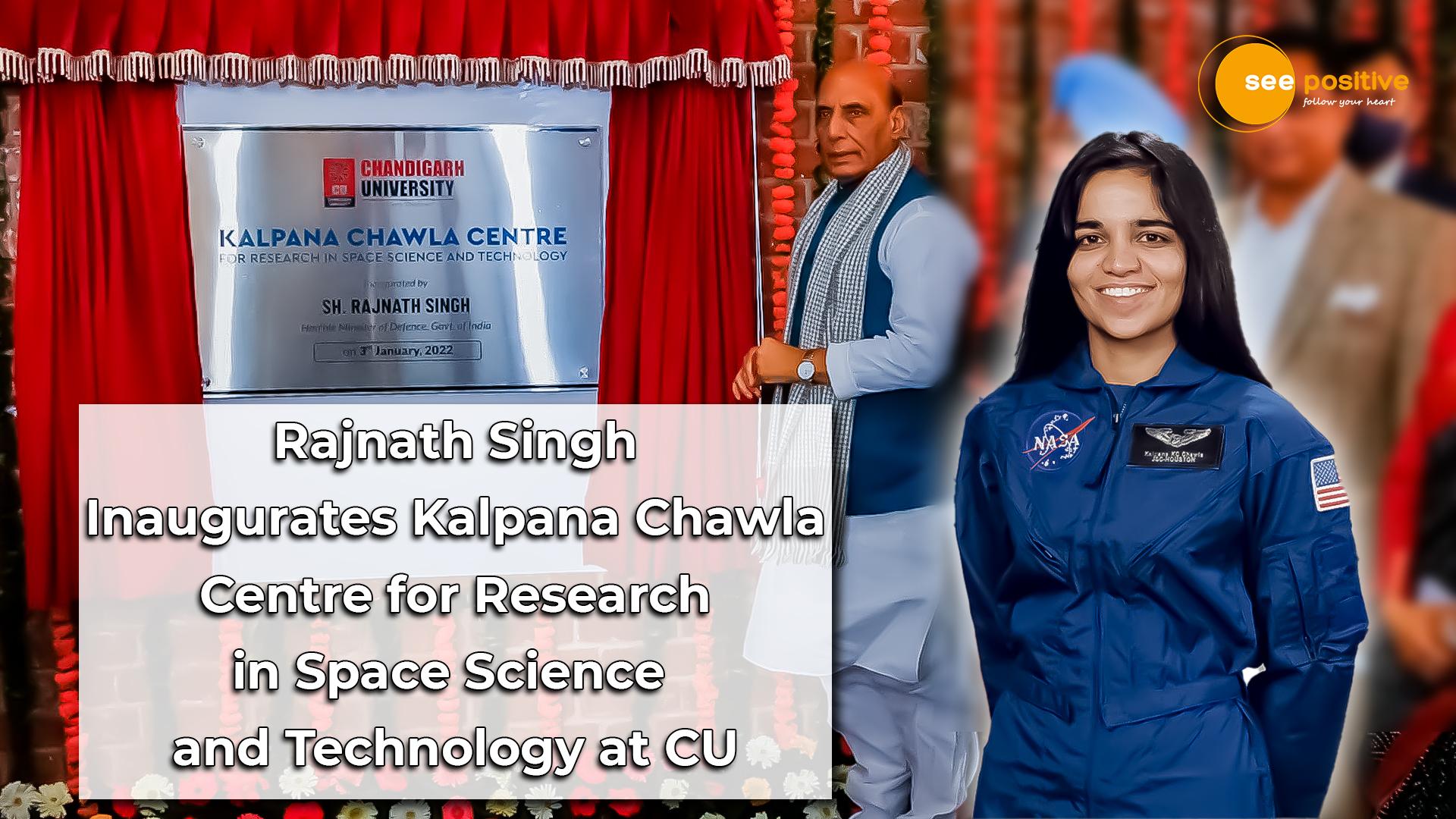

KCCRSST News Highlights :
- The Kalpana Chawla Centre for Research in Space Science and Technology (KCCRSST) at Chandigarh University was inaugurated by Defence Minister Rajnath Singh on 3 January.
- Chandigarh University has joined a list of 13 institutes, including the Indian Institute of Technology (IIT) Kanpur and the Indian Institute of Technology (IIT) Bombay
- Rajnath Singh praised the Research Centre’s foundation as a significant step in strengthening India’s space sector
Why in news?
The Kalpana Chawla Centre for Research in Space Science and Technology (KCCRSST) at Chandigarh University was inaugurated by Defence Minister Rajnath Singh on 3 January.
He also announced a Rs 10 crore scholarship scheme for the defence personnel from all three services.
The state-of-the-art KCCRSST would be the Ground Control Station for the Chandigarh University’s Student Satellite (CUSat), an in-house developed nano-satellite being designed by the university’s students, and a Geo-Spatial Centre for research, among other projects, according to a Defence Ministry release on 3rd January.
Chandigarh University’s Student Satellite (CUSat)
The CUSat will be one of 75 student-built satellites launched into space for the 75th anniversary of the United States’ independence in 2022.
Chandigarh University has joined a list of 13 institutes, including the Indian Institute of Technology (IIT) Kanpur and the Indian Institute of Technology (IIT) Bombay, as the first university in North India to design and create its own satellite.
Under the supervision of famous Indian scientists, 75 students from the university have been working on the Chandigarh University Student Satellite Project.
Punjab will become the first Indian border state to send its own satellite into orbit with the launch of CUSat.
Nanosatellite Launch
The launch of the university’s nanosatellite, CUSat, will be a significant step forward for the country, as it will collect data on border intrusion detection, agriculture, weather forecasting, and natural disaster forecasting, all of which will aid in the research and study of various problems in these fields.
In addition, the GCS will assist in the development of satellite research facilities as well as the launch of satellites in nations that lack satellite technology.
Remembering Kalpana Chawla
Rajnath Singh praised the Research Centre’s foundation as a significant step in strengthening India’s space sector, emphasizing that it is only through these efforts that India can become a leader in future technology.
Rajnath Singh lauded late Indian-born astronaut Kalpana Chawla as a symbol of women’s empowerment who “went a flight beyond imagination.”
He urged the public to keep her energy and excitement alive and to encourage their daughters to achieve unthinkable heights.
Know what ministry says?
According to the ministry, he compared the KCCRSST to the late India-born astronaut Kalpana Chawla, anticipating that this research centre would reach new heights of accomplishment, akin to the late India-born astronaut’s extraordinary exploits, which earned international respect to her country of origin.
“The future of India in the twenty-first century can be ensured only if you have a glimmer in your eyes to reach the stars and planets.”
If you look at other planets and constellations, more Indians like Aryabhata, Vikram Sarabhai, Satish Dhawan, and Kalpana Chawla will emerge from among you all,” the Defence Minister said to the youngsters on the occasion.
Singh advocated for a strong and long-term public-private cooperation to take India’s education and science sectors to the next level and transform it into a knowledge economy.
Private Sector has access to wide opportunities
“Today, the private sector has access to a wide range of space-related opportunities.
We strongly welcome the private sector, whether in defence or space,” he added, underlining the government’s commitment to strengthening the private sector for the nation’s holistic development.
He stated that the Indian National Space Promotion and Authorization Centre (IN-SPACe) will serve as a single point of contact for all concerns relating to the space sector.
The government is putting a specific emphasis on boosting the use of space-based applications across all sectors, according to the Defense Minister.
Geo-tagging of roads and other infrastructure in communities, satellite imaging monitoring of development projects in rural places, and agricultural problem identification is helping the government in many ways, he added.


